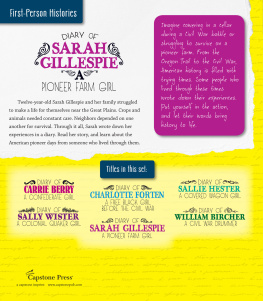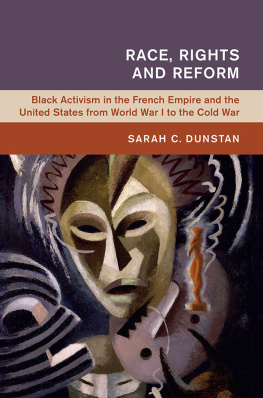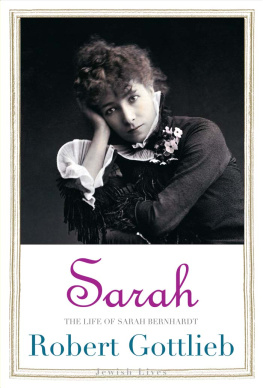Leaders of Their RaceWOMEN, GENDER, AND SEXUALITY IN AMERICAN HISTORY
Editorial Advisors:
Susan K. Cahn
Wanda A. Hendricks
Deborah Gray White
Anne Firor Scott, Founding Editor Emerita
A list of books in the series appears at the end of this book.
Leaders of Their Race
Educating Black and White Women
in the New South
SARAH H. CASE
2017 by the Board of Trustees
of the University of Illinois
All rights reserved
Library of Congress Cataloging-in-Publication Data
Names: Case, Sarah H.
Title: Leaders of their race : educating black and white women in the new South / Sarah H. Case.
Description: Urbana : University of Illinois Press, 2017. | Series: Women in American history | Includes bibliographical references and index.
Identifiers: LCCN 2017011655 (print) | LCCN 2017033662 (ebook) | ISBN 9780252099847 (ebook) | ISBN 9780252041235 (hardback) | ISBN 9780252082795 (paper)
Subjects: LCSH: WomenEducationSouthern StatesHistory. | WomenEducationUnited StatesHistory. | African American womenEducationSouthern StatesHistory. | Women, WhiteEducationSouthern StatesHistory. | WomenSouthern StatesSocial conditions. | Lucy Cobb Institute (Athens, Ga.)History. | Spelman Seminary (Atlanta, Ga.)History. | BISAC: SOCIAL SCIENCE / Womens Studies. | EDUCATION / History. | HISTORY / United States / 20th Century.
Classification: LCC LA230.5.S6 (ebook) | LCC LA 230.5.S6 C 37 2017 (print) | DDC 370.820975dc23
LC record available at https://lccn.loc.gov/2017011655
For Julia and KatharineContents
Acknowledgments
I am indebted to many who have assisted me in the project. Special thanks go to Jane Sherron De Hart, for her insightful comments and critiques of the manuscript, and to Carl Harris, for his inspiring commitment to the study of southern history. John Majewski had clear and helpful advice, and Erika Rappaport made many suggestions that sharpened my thinking. Thanks also to Ann Plane, Mary Furner, Patricia Cline Cohen, Alice OConnor, Otis L. Graham Jr., and Lisa Jacobson, and to Beverly Schwartzberg, Jay Carlander, Anne Rapp, and Anne Petersen. Thanks also to Dean Maarten Pereboom of Salisbury University, for granting a Deans research award and a semester sabbatical that assisted my work on this project.
Deep appreciation goes to the anonymous readers for the University of Illinois Press, who offered critiques and advice that improved the project tremendously. Thanks also to those who have read or commented on conference papers or other work related to this manuscript, including Ann Short Chirhart, John Inscoe, and Jacqueline Jones. I am very appreciative of the patience, support, and clear advice of my editors at University of Illinois Press, Dawn Durante and Laurie Matheson.
I especially want to thank the archivists and librarians who assisted my research. The late Taronda Spencer at Spelman had an encyclopedic knowledge of the college, equaled only by her kindness and generosity with her time. Holly Smith and Kassandra Ware have been equally helpful, professional, and expert in their assistance with the finishing stages of the project. Id like to also thank the archivists of the Hargrett Library at the University of Georgia who helped me navigate the universitys extensive collections during several visits, especially Chuck Barber; special thanks also to Mary Linneman for helping with reproductions and images. Thanks also to the staff of the Athens-Clarke County Heritage Foundation, the Agnes Scott College Library, the Auburn Avenue Research Library on African American Culture and History, the Robert W. Woodruff Library at Emory University, and the Robert W. Woodruff Library at the Atlanta University Center. My appreciation also goes to the late Phyllis Jenkins Barrow for sharing her memories of Lucy Cobb with me at her home in Athens.
Many thanks to the editors of The Public Historian, Randy Bergstrom and James F. Brooks, who have been extraordinarily supportive of my work on this book. Thanks also to my family for their love and support.
Leaders of Their Race
Introduction
Women, Education, and the New South
The June 1896 edition of the Spelman Messenger, the schools monthly newsletter, was almost entirely devoted to an essay by Henry Morehouse, president of Spelmans board and the executive secretary of the American Baptist Education Society, titled The Worth of Spelman Seminary to the World. In this essay marking the fifteenth anniversary of the Atlanta school, Morehouse celebrated the seminarys accomplishments and character, stating that it had contributed to southern, African American, and national progress. Most notably, he asserted, Spelman had created women who would become leaders of their own racethe female half of the talented tenth that would aid in both the civilization of the southern Negro and the establishment of right relations between the two races. The mix of condescension and support for African American women apparent in Morehouses essay was typical of white supporters of the seminary, but it also points to an assumption shared by Spelman students and alumnae themselvesthe central purpose of their education was to create women who would take a leading role in contributing to racial advancement in the post-Civil War, or New South.
The following year, in December of 1897, a newspaper described the Lucy Cobb Institute of Athens, Georgia, as the best college for women south of Baltimore, noting both the rigorous academic program and the atmosphere of refinement and good breeding that bespeaks the nature of the patronage of the school. Like Spelman, Lucy Cobb alumnae would be leaders of their racebut for the Athens school, race leadership meant maintaining white supremacy, not breaking it down. Both Spelman and Lucy Cobb viewed womens education as crucial to racial, regional, and national progress, but their vision of progress diverged sharply by race.
Leaders of Their Race: Educating Black and White Women in the New South analyzes the educational objectives of the founders, faculty, students, and alumnae of two schools that sought to prepare young women for the new circumstances of the postwar South. Founded in 1881 in a church basement by two white northern women, Sophia Packard and Harriet Giles, representatives of the Womans American Baptist Home Missionary Society, Spelman Seminary viewed its mission as Christian education for black women in a cloistered, single-sex environment. Chartered in 1859 by politician, lawyer, and pro-slavery theorist T.R.R. Cobb as a place to educate the young white ladies of Athens, Lucy Cobb Institute evolved significantly after 1880, when his nieces Mildred Rutherford and Mary Ann Lipscomb took on the administration of the school. A close examination of these two private secondary schools for young women, one for African Americans, one for whites, provides a way to explore beliefs about womens roles and duties, racial and class divisions between women, and changes in expectations of womens citizenship rights and duties. Giving particular attention to the years between 1880 and 1925, and focusing on two Georgia schoolsthe Lucy Cobb Institute of Athens, and Spelman Seminary (now College) of Atlantathis book demonstrates the importance of secondary-level female education in refashioning womens identity, and analyzes the significance of race, gender, sexuality, and region in shaping that education. It identifies the social and ideological backgrounds of founders and influential faculty members of each school, and their goals in teaching young women. Additionally, it examines who attended both schools, the motivations and agenda of students, and how alumnae used their education after leaving school. Using a comparative approach, it explores what female education indicates about the multiple and complex ways that racial and gender ideology functioned in the New South. It especially analyzes the attention given to cultivating modesty and sexual restraint in both schools, and argues that concerns about female sexuality and respectability united the two schools, despite their very different student populations. Further, by highlighting the actions of women as teachers, students, and alumnae, it analyzes how southern women used their education to negotiate the political, economic, and social upheavals of the New South. Both black and white women had new responsibilities as leaders of their raceand both viewed these new expectations in specifically race-conscious ways.









